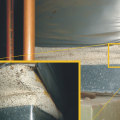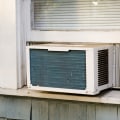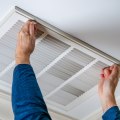As an expert in HVAC systems and energy efficiency solutions, I'm often asked what type of insulation should be used when replacing an air conditioning unit. The answer depends on several factors including climate conditions and budget constraints. ASHRAE (American Society of Heating, Refrigerating and Air-Conditioning Engineers) recommends using closed-cell insulation with a vapor retarder such as cellular glass, elastomeric foam rubber, polyisocyanurate or phenolic for cold lines. This type of insulation helps control condensation by providing an effective barrier against moisture infiltration.
When it comes to cost versus effectiveness balance, polyethylene foam products are usually your best bet. These materials have closed-cell designs which prevent moisture from entering while also providing soundproofing benefits. Spray polyurethane foam is another popular option for attics, walls and floors due to its ability to reduce air leaks. When replacing your air conditioner's refrigerant pipes' insulation it's important to remove any old material with a razor or utility knife without damaging the copper pipe underneath.
Pre-packaged jacket designs such as pre-packaged air-conditioning insulation wrap-around covers are easy to install in hard-to-reach areas like attics or existing walls. The Armacell Energy division offers a range of industry-leading flexible insulation and coating technical systems for industrial energy projects around the world. It's important that you choose an R value that matches your climate conditions when selecting an insulating material for your coolant pipes. Installing new insulation before summer season ensures that your system is ready for use when temperatures start rising.
Without proper insulation and air sealing it's impossible for a heating and cooling specialist to correctly estimate what size unit you need for your home. Additionally, trapped air can create persistent wet areas which will cause condensation on ducts and water dripping all over your roof - this means that you won't need as much air conditioning power and may even have to reduce its size! Finally, outdoor HVAC lines' insulation can degrade over time due to weathering or UV rays which leads to a loss of efficiency - this is why it's important to replace it regularly with an easy-to-install material like refrigerant pipe insulation.


